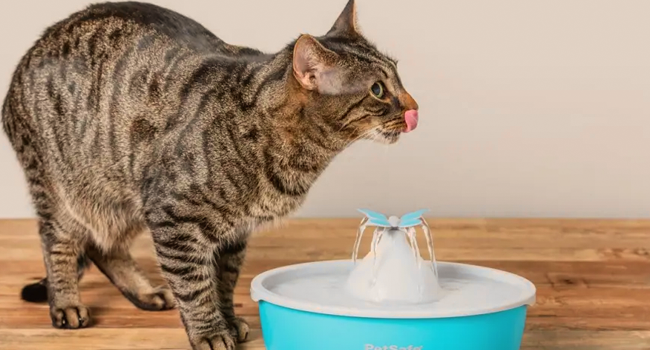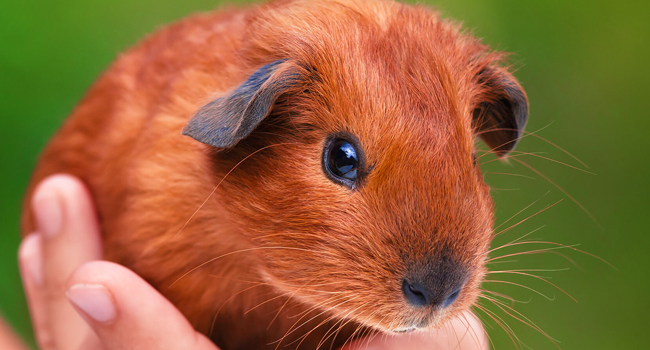Choosing the Right Pet for Your Lifestyle: A Comprehensive Guide

Bringing a pet into your life can be one of the most fulfilling experiences, but it’s essential to choose the right pet that aligns with your lifestyle. From urban dwellers to those in rural settings, individuals with spacious homes to cosy apartments, and active adventurers to homebodies, there’s a perfect pet for everyone. In this comprehensive guide, we’ll explore the critical considerations for selecting the ideal pet companion and how to prepare for their arrival.
The Importance of Choosing the Right Pet
Before diving into the specifics, let’s emphasize the significance of making the correct pet choice. A pet isn’t just an accessory; it’s a long-term commitment that can bring joy, companionship, and, at times, challenges into your life. Picking a pet that matches your lifestyle is crucial for your and the animal’s well-being.
Assessing Your Lifestyle
- Urban vs. Rural Living
The kind of pet ideal for you depends mainly on where you live. Urban dwellers often have limited space and may need low-maintenance pets, while rural residents typically have more room for active and larger animals.
- Living Space
Consider your living space. Do you reside in a compact city apartment or a spacious suburban house? The size and breed of pet you can have depends on the size of your home.
- Activity Level
Are you an active individual who enjoys daily outdoor activities or prefers a more relaxed indoor lifestyle? Your level of physical activity should match that of your potential pet.
- Allergies
Be mindful of any allergies you or your family members may have. Some individuals are allergic to pet dander, which can affect their choice of pet.
Types of Pets and Their Suitability
Now, let’s delve into the types of pets and their suitability for various lifestyles.
- Dogs
Dogs are known for their loyalty and companionship. They are perfect for active individuals or families with ample space and time for walks and play.
- Cats
Cats are more independent and can adapt well to smaller living spaces. They make great companions for those who have a busy lifestyle but still want the comfort of a pet.
- Fish
For people with limited space or busy schedules, fish can be a great option. Maintaining an aquarium can be soothing, but it requires regular care.
- Birds
Birds are perfect for individuals who enjoy the beauty of avian companions. They are relatively low-maintenance and can thrive in smaller living spaces.
Matching Your Lifestyle to a Pet
Let’s match different lifestyles to suitable pets.
- Dog Lovers
Some of the most popular breeds if you’re an active dog enthusiast include German Shepherds, Golden Retrievers, and Labrador Retrievers. They need constant care and engagement.
- Cat Enthusiasts
For those who prefer a more relaxed lifestyle, breeds like Persian or Ragdoll cats may be the perfect fit. Cats are independent and need less exercise.
- Fish Aficionados
Maintaining an aquarium with colourful fish can be a rewarding hobby for individuals with limited space and time.
- Bird Admirers
Bird lovers can enjoy the company of parakeets, canaries, or cockatiels. Birds are relatively low-maintenance and provide melodious companionship.
- Preparation for Pet Ownership
Now that you’ve chosen your ideal pet, it’s time to prepare for their arrival.
- Setting Up Your Home
Ensure your home is pet-friendly by pet-proofing your living space and having the necessary supplies such as food, water bowls, and a comfortable bed.
- Budgeting
Owning a pet comes with financial responsibilities—plan for expenses like food, vet visits, and potential emergencies.
- Finding a Pet
Think about locating a trustworthy breeder or adopting from a shelter. Before deciding on a pet, research and visit the animal.
- Important Considerations
While we have covered the basics of choosing the right pet, there are some additional factors to keep in mind as you make this critical decision:
- Time Commitment
Every pet requires a certain amount of time and attention. Dogs, for instance, need regular exercise and social interaction. Cats also need companionship, though they are more independent. Be sure to evaluate how much time you can devote to your pet.
- Longevity
Different pets have varying lifespans. Dogs, on average, live around 10-15 years, while cats can live up to 20 years or more. Smaller pets like fish or birds have shorter lifespans. Consider whether you are prepared for the long-term commitment of pet ownership.
- Allergies and Health Concerns
It’s essential to be aware of any allergies or health conditions you or your family members may have. Some pets can trigger allergies, and some breeds may be prone to specific health issues. Research and consult with a veterinarian if necessary.
- Compatibility with Other Pets
If you already have other pets, consider their temperament and compatibility with the new addition. Not all animals get along with each other, so ensure a smooth introduction and transition.
The Joy of Pet Ownership
While selecting the right pet involves many considerations, it’s essential to highlight the immense joy and benefits of pet ownership. Pets can provide companionship, reduce stress, and enhance overall quality of life. Their unconditional love and loyalty are truly priceless.
Building a Strong Bond with Your Pet
Once you’ve chosen your perfect pet and brought them into your home, the next step is to build a strong bond. Here are some tips to help you and your new companion develop a deep and lasting connection:
- Spend Quality Time Together
Dedicate time for play, walks, and cuddles. Engaging in activities you both enjoy will strengthen your bond.
- Positive Reinforcement
Reward good behaviour with treats and praise. Positive reinforcement helps your pet understand what’s expected of them.
- Training and Socialization
Training is not just for dogs. Cats, birds, and even fish can benefit from basic training and socialization. It helps them become well-behaved and well-adjusted pets.
- Regular Health Check-ups
Ensure your pet’s well-being by scheduling regular vet visits. This not only keeps them healthy but also provides an opportunity for professional advice on pet care.
- Grooming and Maintenance
Grooming your pet is a great way to bond while keeping them clean and healthy. Brushing, bathing, and regular maintenance are essential.
- Respect Their Personality
Just like people, pets have unique personalities. Some are outgoing, while others are more reserved. Respect their individuality and adapt your approach accordingly.
- Maintaining a Pet-Friendly Environment
Creating a pet-friendly environment in your home is vital for both your pet’s well-being and your convenience. Here are some considerations:
- Pet-Proofing
Ensure that your home is safe for your pet. Remove or secure any items that could be harmful or tempting for them to chew or play with.
- Provide Adequate Space
Make sure your pet has enough space to move around comfortably. Cats may need vertical space for climbing, while dogs require room to play.
- Toys and Entertainment
Provide toys and entertainment to keep your pet mentally stimulated. Interactive toys can be a great source of exercise and fun.
- Proper Nutrition
Feed your pet a balanced diet appropriate for their age and size. Consult with your veterinarian to determine the best food for your pet’s specific needs.
- Hygiene and Cleanliness
Maintain a clean environment. Regularly clean your pet’s living space, wash their bedding, and dispose of waste properly.
Conclusion
Choosing the right pet for your lifestyle is a decision that should not be taken lightly. It requires thoughtful consideration of your living situation, activity level, and personal preferences. A well-matched pet will bring joy, companionship, and endless love to your life.
FAQs
- How do I know which pet is right for me?
Assess your lifestyle, living space, and activity level—research different pet types to find a good fit.
- Can I own a dog in an apartment?
Yes, but consider smaller breeds that require less exercise and adapt well to limited space.
- Are there hypoallergenic pets for individuals with allergies?
Specific dog and cat breeds are regarded as hypoallergenic because they generate fewer allergies.
- What should I budget for when owning a pet?
Budget for food, regular vet check-ups, grooming, and unexpected medical expenses.
- Is adopting a pet from a shelter a good choice?
Yes, adopting a pet can provide a loving home for animals in need and is a fulfilling choice for many prospective pet owners.






